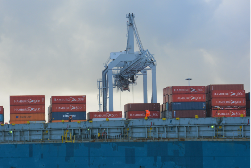This number is up by 50% from 100,000 when ICS first highlighted the problem with national governments and the G20.
The staggering figure is being revealed on the back of the International Labour Day – May 1 which has been marked with ships sounding their horns across the globe in support of seafarers.
Seafarers are facing an unprecedented crisis as a result of the COVID-19 pandemic. Namely, due to the lockdown measures and restrictions on travel seafarers have been unable to conduct crew changes and some of them are stuck onboard ships for much longer than originally planned.
Delivery of supplies and in some instances even payment of wages has been delayed or challenged posing considerable risk to seafarers’ well being and mental health.
Industry bodies have been calling on governments to find a solution and declare seafarers essential workers in order to facilitate their transfer from ships to ports and fly them back home.
Specifically, concerns have been raised that extended time at sea onboard ships and the inability to repatriate might even compromise the safety of the supply chain and operation of ships amid heightened pressure on crews who have been essential in delivering goods in this time of crisis.
However, despite calls to designate ports for crew changes and different solutions from unions, a comprehensive solution is yet to be found. The ICS believes the inaction from governments is exacerbating the problem.
“Globally there are 1.2million seafarers onboard 65,000 ships at sea. For the past two months crew change has all but completely stopped. This means that crew have not been able to disembark or embark ships at port and terms have had to be extended, but this is not sustainable. International Workers’ Day is the ideal moment to recognise their contribution to fighting the coronavirus pandemic. We thank you,” Guy Platten, Secretary General ICS, said.
“The new data indicates that 150,000 seafarers are in need of immediate crew change, with the potential for this number to increase significantly until travel restrictions are eased.”
Source: http://worldmaritimenews.com


